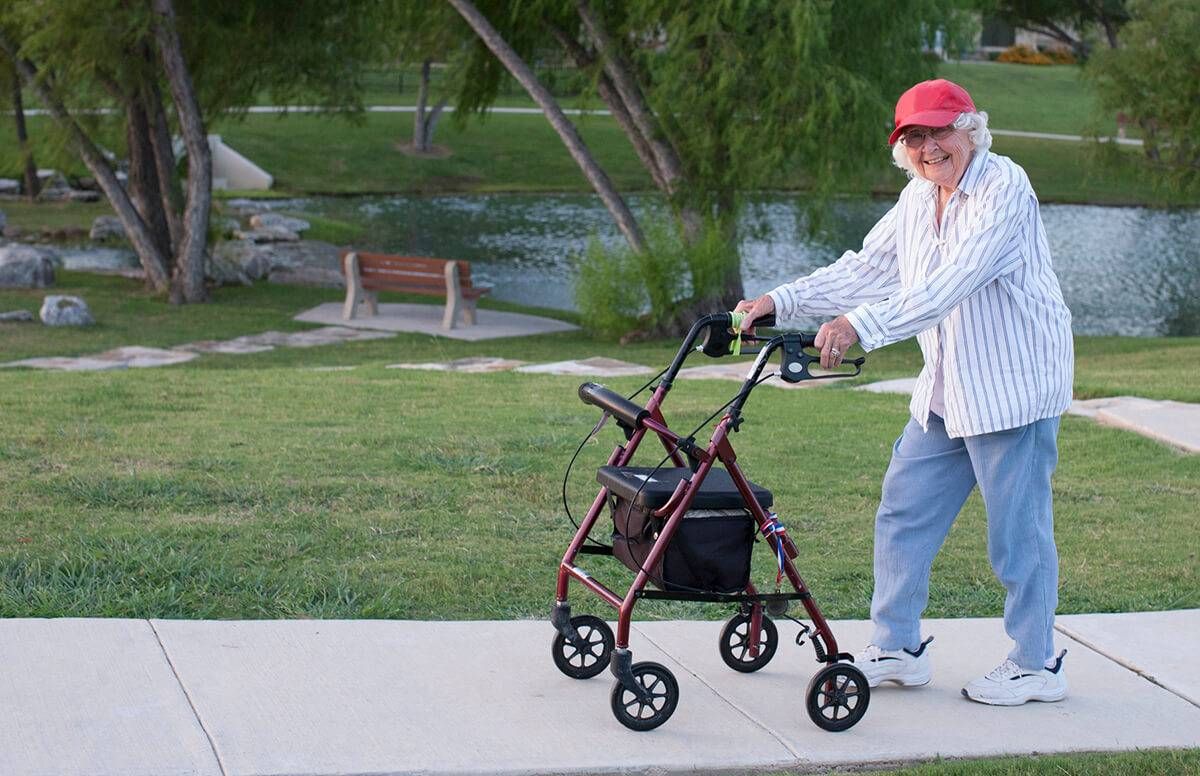What Inspiring Centenarians Teach Us About Health
Food and exercise are only part of the picture, a cardiologist says
People who live to be 100 or even over 100 are growing in numbers. In fact, some experts believe the person who will live to be 150 has already been born. With new advancements in medical treatments, stem cell research and 3D printing, this goal is becoming increasingly easy to achieve for all of us. But for the tens of thousands of recorded centenarians and some 60 supercentenarians (those 110 or older), these advancements were not the key to their longevity.

More Than One Way to Become Centenarians
Researchers have come to the conclusion that there are three basic types of centenarians: survivors, delayers and escapers. Escapers are those who simply never developed the symptoms of the most common age-related diseases, such as dementia, heart problems or cancer. But they are by far the smallest group. Most centenarians and supercentenarians fall into the first two categories.
Survivors are those who developed these diseases before the age of 80 but continued to live on in spite of them. And delayers developed the symptoms after the age of 80. That just goes to show that many of these diseases can be overcome and that there’s something more at play here.
A Healthy Diet Can Work Wonders
The benefits of a healthy diet are praised left and right, and you’re most likely tired of hearing how important it is to eat right and avoid processed food, but this is one of the things most centenarians have in common. Most of them cite their healthy diets as part of the reason why they’ve managed to live such a long and healthy life. What goes into this food palate differs quite a bit from region to region. Fish and vegetables seem to pop up most often.
However, most of these people do claim they allow themselves a little treat from time to time. Jeanne Calment, the oldest person on record, who died in 1997 at the ripe old age of 122, claimed she had a passion for chocolate and drank Port wine regularly. Antonio Docampo García, who lived to be 107, said the secret to his longevity was a shot of brandy every morning and plenty of red wine. Jeralean Talley of Inkster, Mich., who was 116 at her death in 2015, loved pork. What they all seemed to have in common was moderation.
Stop Counting the Years
It also seems that what many centenarians and supercentenarians have in common is a positive attitude.
As Marvin C. Knudson put it shortly before his death at 101, “The trick is to not act your age.” Calment decided to pick up fencing at 85. Misao Okawa, who was 117 when she died in 2015, broke her leg when she was 102. After being brought home, she was regularly seen doing squats to spur on her recovery.
These people’s approach to life proves the old adage that “age is just a number,” one they’ve stopped counting a while ago. Researchers have shown that epigenetics has an important role in longevity. Epigenetics studies the changes in genes that are not related to DNA but rather to external causes. Mood and environmental factors can affect the way in which genes behave. In other words, living life to the fullest, regardless of the number on paper, can have tremendous health benefits.
Avoiding Stress Is Not the Answer
It was long believed that people who avoid stress tend to live longer. However, it is impossible to avoid stress all of the time, especially if you live 100 years or more. Consider the fact that all of these people have lived through two world wars. And that’s not even counting all of the hardships and disappointments sprinkled throughout an average life. Needless to say, they have had stressful periods.
But most of them found something to keep them afloat. Many centenarians seem to have in common a firm connection with their community, friends and families. They’ve all found activities that help them focus and take their mind off their worries. And if you haven’t started living life to the fullest, it’s never too late to decide what you’re going to do with the rest of your life.
The Benefits of Living an Active Life
Nobody can deny that there is a connection between exercise and longevity. A moderate workout routine has proven health benefits. But exercising is just one part of the equation.
Many of the centenarians and supercentenarians alive today grew up during a time when exercising was not so popular. They may have picked up the habit later on, but what seems to have benefited them was an active lifestyle in general. Most had some passion or hobby that kept their minds and bodies active. And many centenarians living in remote corners of the world, with very limited access to health care, still managed to live over a century, partly because of the demands of their lifestyle.
So if you’re not too fond of going to the gym or working out, find some other activities that keep you on the move. Calment rode a bike every day, Margaret Dunning, who lived 104 years, never gave up her passion for collecting and restoring old cars and Astrid Thoenig continued to work full-time well after her 100 birthday. These activities might not all count as exercise, but they do go into creating an active lifestyle.
What all of these people have to teach us about health is that there is a world of possibilities out there. Age can stop you from doing the things you enjoy only if you let it. What is remarkable about the lives of the centenarians is not just their longevity, but the fact that they’re still enjoying themselves. These two seem to go hand in hand.

